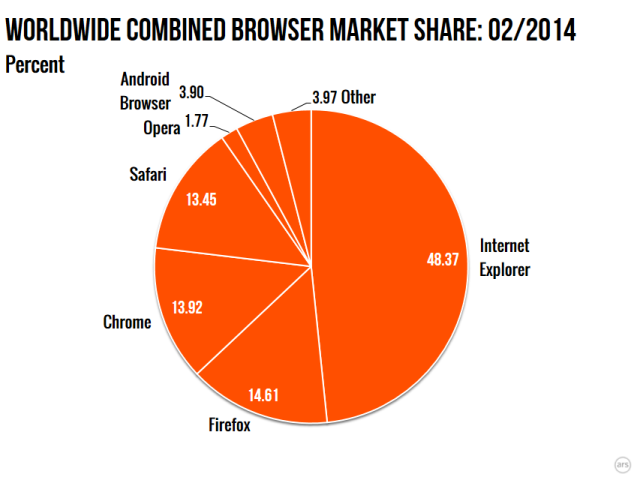
In February we saw the usual small movements in the browser market. More significantly, however, we didn't see any significant movements in the operating system market. For the second month in a row, Windows 8.x's share is basically unaltered... and so is Windows XP's.
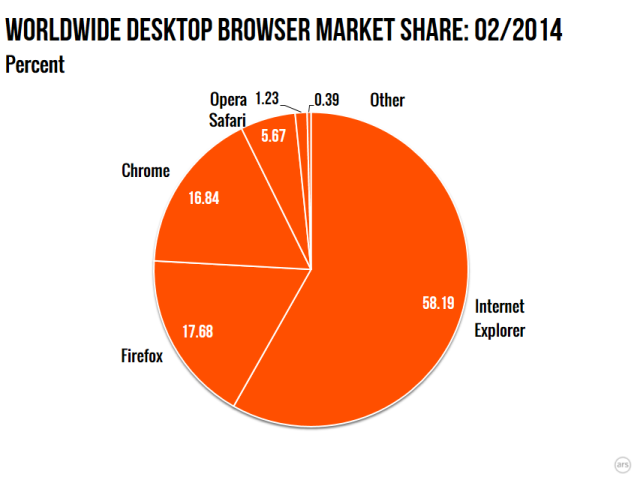
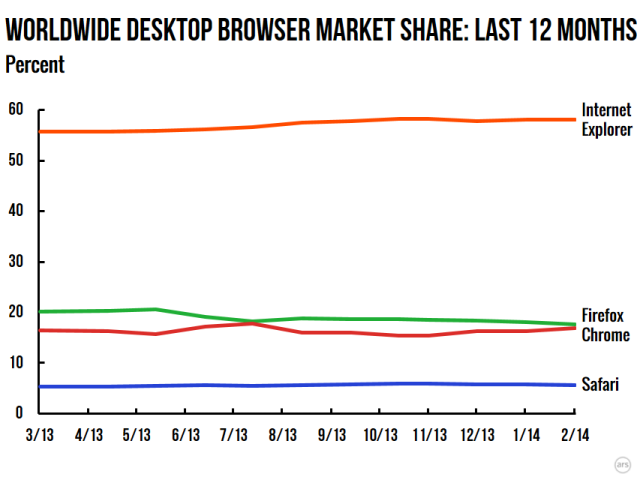
The desktop browser space today seems steadier than it has been for a long time. Internet Explorer's share was virtually unchanged, down 0.02 points. Firefox also fell, down 0.40 points, and Safari dropped 0.13 points. Chrome grew, up 0.56 points. Chrome and Firefox haven't been this close since last July; perhaps 2014 will be the year when Chrome pushes Firefox into third place.
Absent some big reason to shake things up, this is unlikely to change any time soon. The impending loss of support of Internet Explorer on Windows XP should hopefully push users of that operating system to, if not switch operating systems entirely, at least switch to Firefox or Chrome; Mozilla and Google will both support their browsers on Windows XP for at least a year after Microsoft drops support. But in practice, anyone conscientious enough to switch browsers because of the lack of support would switch operating systems too.
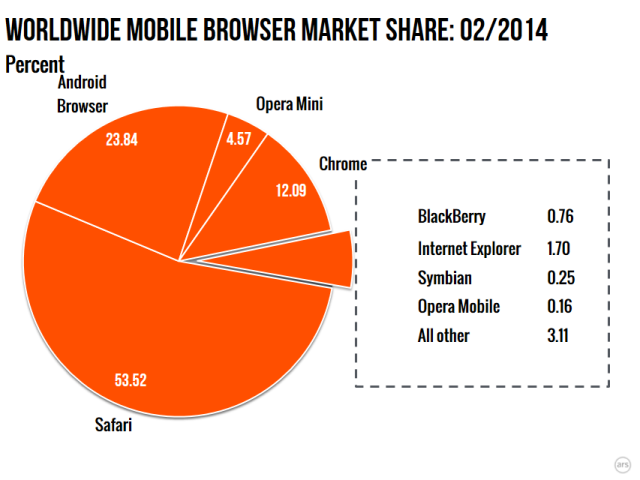
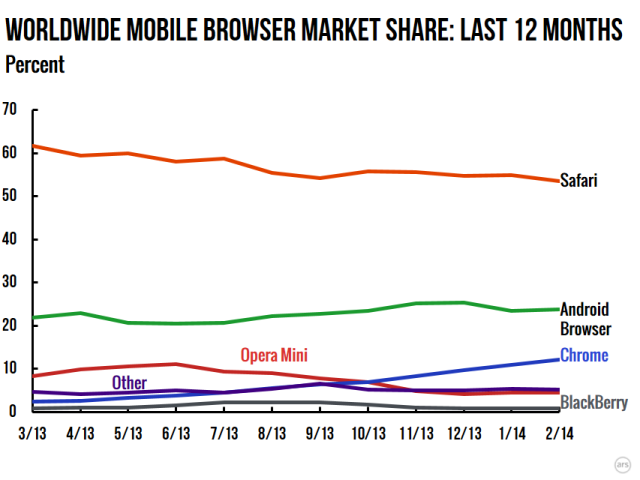
Similarly, the movement of the mobile markets is following a predictable pattern. Chrome is continuing its steady rise, up 1.21 points. Android Browser also gained, up 0.36 points. Safari remains dominant, in spite of dropping 1.44 points. Among the also-rans, the biggest change was seen by Internet Explorer, which gained 0.07 points. Google's push to replace Android Browser with Chrome is plainly producing results.
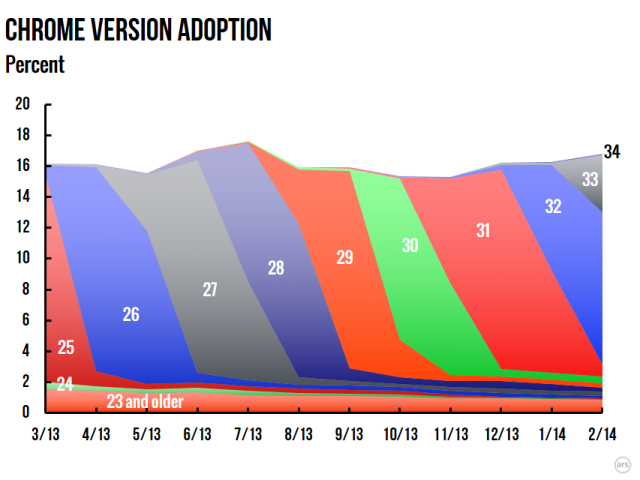
The one bright note for Microsoft this month is Internet Explorer 11. Although December's growth spurt hasn't been repeated, Microsoft is continuing to convert users from Internet Explorer 10 to 11, with the former losing 1.24 points and the latter gaining 1.29 points. This is still a far cry from the swift and steady transitions that Chrome and Firefox enjoy, but nonetheless a good performance for a Microsoft browser.
For the second month in a row, Windows 8.x's aggregate market share has barely moved. It was up 0.09 points in January; it's up 0.10 points in February. Windows 8 still outnumbers Windows 8.1, too, though the story there is a little happier for Redmond, with 8.1 growing by 0.35 points, and 8.0 falling by 0.25 points, indicating that Windows 8 users are installing the free 8.1 update, albeit slowly. Microsoft's forthcoming update to Windows 8.1 may improve the take-up of 8.1, as it will improve Internet Explorer 11's legacy compatibility, something that has prevented some organizations from updating from 8.0 (with Internet Explorer 10).
But that's about the best that can be said for it. Windows 8 isn't growing, and just as significantly, Windows XP isn't going away.
Microsoft will soon start telling XP users that their operating system is about to lose support, and there are rumors that the company may produce a low- or no-cost Windows version that might encourage reluctant upgraders to switch. But it's clear that there's a problem here. It's not even as simple as Windows 8 alienating buyers: Windows 7 isn't seeing any growth either, as it fell by 0.18 points in February. Microsoft plainly hasn't been able to reach a vast number of Windows XP users to explain to them both what is going to happen, and why it's important. And while Firefox and Chrome will both be supported on Windows XP beyond the end-of-life, the substantial number of people using Internet Explorer 6-8 is strongly suggestive that many of these Windows XP users are going to be using not just an unsupported operating system, but an unsupported browser, too.
Exploitation of these people is inevitable, and it's hard to see this ending well.
Listing image by Tom Carden
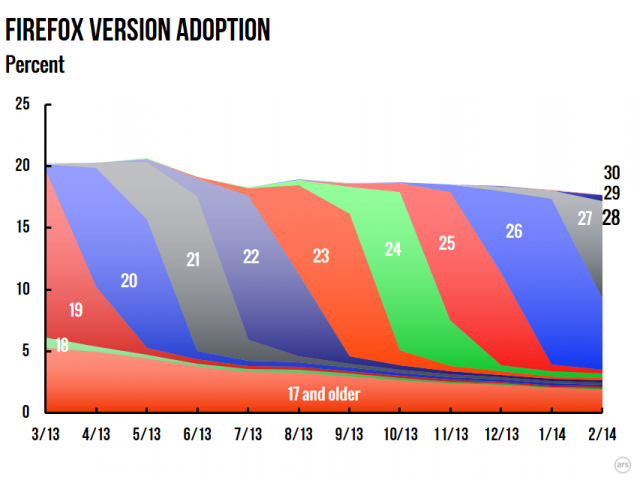
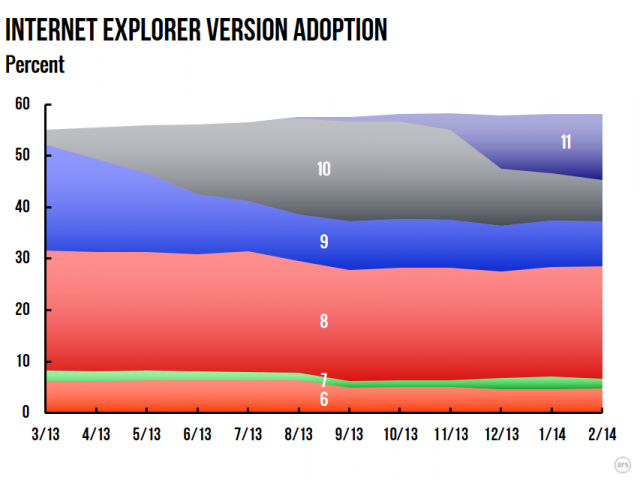
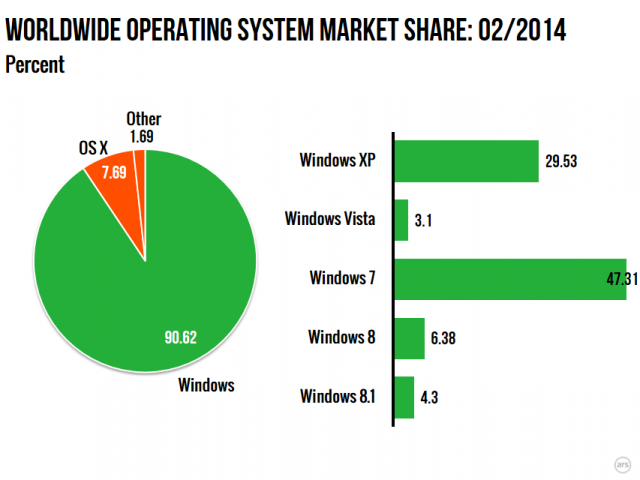
reader comments
177